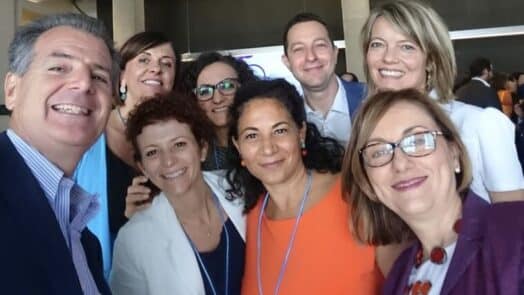Make your people flourish

Here we are again: the International Day of Happiness
What is the International Day of Happiness? It’s a day to be happy, of course! Since 2013, the United Nations has celebrated the International Day of Happiness as a way to recognise the importance of happiness in the lives of people around the world. In 2015, the UN launched the 17 Sustainable Development Goals that seek to end poverty, reduce inequality, and protect our planet – three key aspects that lead to well-being and happiness.
The United Nations invites each person of any age, plus every classroom, business and government to join in celebration of the International Day of Happiness.
I share with you some tips on how best celebrate the day:
1) Today the World Happiness Report is available
I suggest that you read here to reflect on how you should encourage Happiness in the world to improve on 3 major challenges that Humanity is facing: the Obesity, Opioid and Depression epidemics.
Practical policies exist to reverse all three of the epidemics. Obesity can be reduced through regulations limiting sugar additives in storebought products; corrective taxes on soda beverages; the elimination of subsidies on corn (and therefore on high-fructose corn syrup); limits on food advertising, especially to young children; and the promotion of public awareness regarding the causes of obesity and solution through more healthful diets. Mental health can be improved through preventative medicine, measures to strengthen social support systems for vulnerable groups, steps to combat addictions to the new social media and technologies, and greatly improved access to mental health services. The opioid epidemic could be radically reduced by ending the direct marketing of addictive drugs to patients as well as banning the implicit and explicit kickbacks to doctors who (over-)prescribe these dangerous products. These are important “top-down” policy changes. At the same time, “bottom-up” programs of positive psychology and wellness at schools, workplaces, and in the community can help individuals to change their own behaviours, overcome addictions, and pursue life strategies (such as meditation) to bolster their personal well-being and the well-being of friends, family, and community. The evidence is large and growing that such life-change strategies can be highly effective. This year’s Global Happiness Policy Report contains detailed surveys on best practices in education, the workplace, and personal, family, and community well-being.
2) Read about Positive Organisations
Spend some time reading excellent books on how Happy approach can help your organization improve.
Robert E. Quinn’s life mission is to inspire positive change. He does this as a faculty member, author, consultant and speaker. He is a professor emeritus at the University of Michigan’s Ross School of Business and one of the co-founders of the Center for Positive Organizations.
As an author he has published 18 books. His best-selling volume, Deep Change has been used across the world.
Open this book at your own risk. It contains ideas that may lead to a profound self-awakening. An introspective journey for those in the trenches of today’s modern organisations, Deep Change is a survival manual for finding our own internal leadership power. By helping us learn new ways of thinking and behaving, it shows how we can transform ourselves from victims to powerful agents of change. And for anyone who yearns to be an internally driven leader, to motivate the people around them, and return to a satisfying work life, Deep Change holds the key.
3) Make your people Flourish
Veruska Gennari and Daniela di Ciaccio have just published “La Scienza delle Organizzazioni Positive”. The book helps understanding and appreciating how Positive Organisation Science applied to companies create a happy working environment where people flourish and reach results far above expectations.
“Credo che questo libro, in modo molto semplice, consenta di avere chiaro la costellazione di persone che si occupano, in modo diverso, del tema felicità. Per riprendere una metafora, usare l’occhio nudo per avere uno sguardo di insieme e il telescopio per approfondire la conoscenza di qualche stella particolare.” Luciano Canova, Economista





